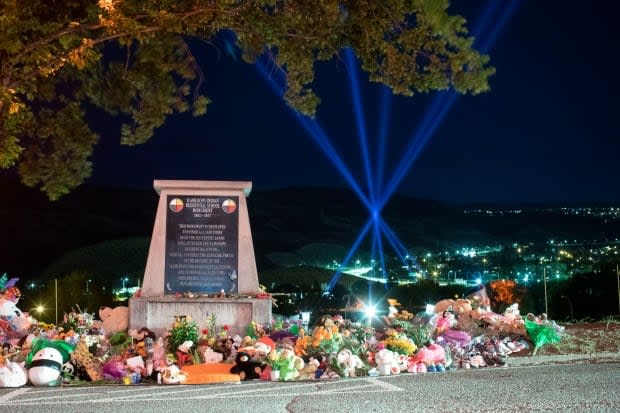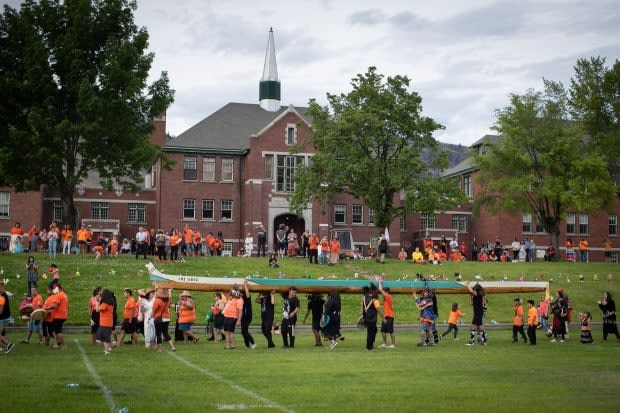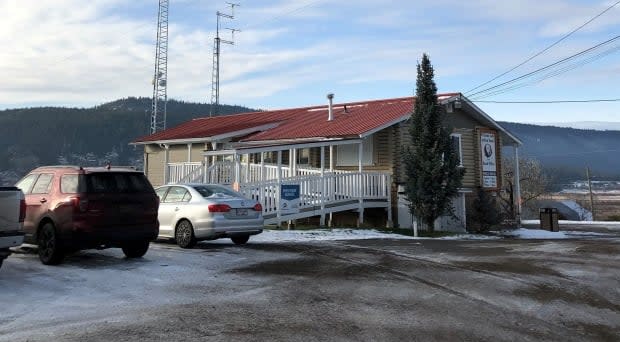Williams Lake First Nation preparing for ground search of former area residential school

WARNING: This story contains details some readers may find distressing.
In the wake of the preliminary discovery of children's remains buried next to the former Kamloops Indian Residential School, Williams Lake First Nation (WLFN) wants to search the site of another former facility that many of its members were forced to attend.
Located a few kilometres from the WLFN community core, St Joseph's Mission operated as a residential school between 1886 and 1981. Chief Willie Sellars says WLFN is now taking steps to launch a comprehensive ground analysis of the land surrounding the site, using the same penetrating radar technology the Tk'emlúps te Secwépemc First Nation used.
St. Joseph's closed in 1981 and has since been torn down, but it left a painful legacy for survivors and their families.
"They survived it so we have the opportunity to do what they couldn't do,'" said Sellars, whose grandparents and father are all survivors.

Sellars, speaking to CBC Radio West host Sarah Penton, said the work will be done slowly, respectfully, and with emotional supports in place for nation members as it will be triggering and emotional for the community.
He said the work will be done in consultation with elders, much like the recent ceremonies held in honour of the Kamloops children who never came home.
Since the Tk'emlúps te Secwépemc announcement, WLFN has held three distinct ceremonies, including a public ceremony at Williams Lake Secondary School, a four-day sacred fire, and a private ceremony at St. Joseph's Mission attended by cultural leaders from Secwépemc, Southern Dakelh, and Tsilhqot'in communities.

Sellars says ceremony is critical to let any children who thought they were forgotten know they will be found.
"All that stuff is key to honouring them and celebrating them and letting them know we are coming," said Sellars.
Sellars said he is in communication about the nation's plans with Marc Miller, the federal minister of Indigenous services, and said he expects Ottawa to pay for the search, although he would like to see the Catholic Church take some responsibility as well
St. Joseph's was opened by Roman Catholic missionaries in 1891.
Physical, emotional and sexual abuse of St. Joseph's students has been documented by the Truth and Reconciliation Commission of Canada.
"We've been hearing these stories since I was a kid," said Sellars.

He told CBC those stories will help inform the search because the area is large, radar penetrating work is costly, and knowing what spots to focus on could be very helpful.
"It's definitely going to be a long road," said Sellars, adding he expects to hear similar search announcements from other nations, both in B.C. and across the country.
"This is just the tip of the iceberg," he said.
In a statement, WLFN Councillor Shawna Philbrick echoed Sellars' sentiment about moving cautiously and in consultation:
"Not all communities in the region will support our stance of being patient, respectful and being led by cultural practice and protocol," said Philbrick. "Our elders have reminded us that there is nothing political about honouring our lost loved ones."
Support is available for anyone affected by their experience at residential schools, and those who are triggered by the latest reports.
A national Indian Residential School Crisis Line has been set up to provide support for former students and those affected. People can access emotional and crisis referral services by calling the 24-hour national crisis line: 1-866-925-4419.

 Yahoo Finance
Yahoo Finance 